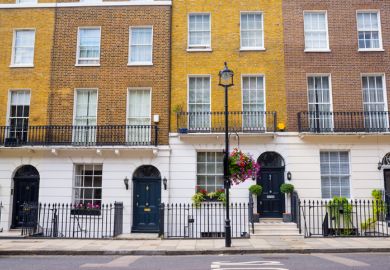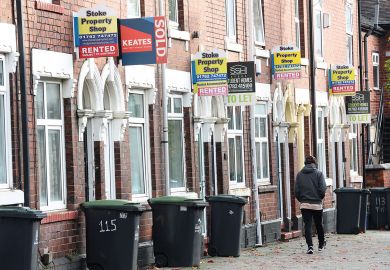The cost of university accommodation in London has risen at such a “shocking” pace that average student rent is above the maximum maintenance loan, according to a new report.
The report, by student housing charity Unipol and the Higher Education Policy Institute (Hepi), draws on data from around 76,000 student beds to highlight the growing financial pressures on those studying in the capital.
It finds that average annual rent for purpose-built student accommodation (PBSA) in London in 2024-25 is £13,595 – £295 a week for just over 45 weeks.
Having increased by a fifth since 2022-23, average rent costs £247 more than the maximum maintenance loan (£13,348), with prices increasing at a faster rate and outstripping inflation. One in seven student rooms in London costs more than £20,000 in 2024-25 – up from just one in 20 in 2022-23.
Though the maintenance loan is set to rise slightly in 2025-26, authors warn it is likely that the practical costs of going to university are deterring people from applying.
With students also expected to use that money for food, travel, clothes, books and personal items, it means that more students are forced to work part-time jobs. And the report finds that more UK students at London institutions are commuting to their place of study because of the unaffordable costs.
While prices set to continue to rise, the report also says that the supply of student houses in the private rented sector is shrinking, with landlords exiting the market in “significant numbers”.
And it warns that stalling growth in the supply of new student accommodation is causing universities to withdraw accommodation guarantees for first-year undergraduate students.
Victoria Tolmie-Loverseed, deputy chief executive of Unipol, said, competition, increasing overheads, construction costs and compliance requirements were all pushing rent levels higher and pricing out domestic students.
Campus resource collection: Helping students through the cost-of-living crisis
“This affordability crisis is putting students in an impossible position,” she added. “As rent levels continue to rise and the supply of affordable accommodation stalls, it is critical that the sector responds to ensure students can continue to study in London.”
University-owned accommodation was found to cost an average of £226 per week for 41 weeks for an ensuite room, while private providers on average charge £341 per week over a 50-week contract.
The findings suggest that demand for student accommodation in London is still strong across both types because of increasing student numbers and limited supply.
However, the report says that there are a number of empty rooms in the current academic year because there are not enough students who can afford the rent.
Nick Hillman, director of Hepi, called for a full review of student maintenance support after the “shocking” findings of the report.
“The level of maintenance support has been overlooked by policymakers at Westminster,” he said. “Higher education in London is coming to look very different from higher education elsewhere in the UK and by accident rather than design.”
The report calls for the government and universities to support the mayor of London’s London plan, which emphasises affordability and sustainable development, but has been criticised for failing to deliver.
It also recommends that universities and private providers prioritise financial support for students, and that the sector must make student accommodation “integral to local plans”.
Register to continue
Why register?
- Registration is free and only takes a moment
- Once registered, you can read 3 articles a month
- Sign up for our newsletter
Subscribe
Or subscribe for unlimited access to:
- Unlimited access to news, views, insights & reviews
- Digital editions
- Digital access to THE’s university and college rankings analysis
Already registered or a current subscriber?








